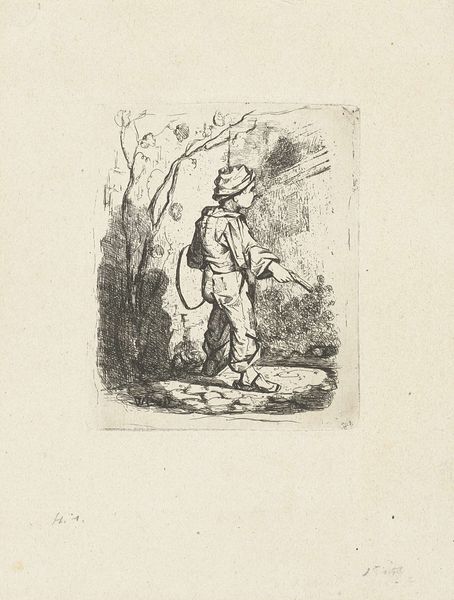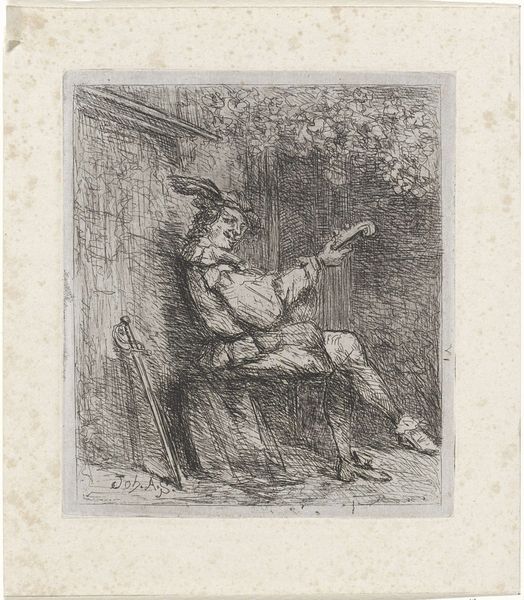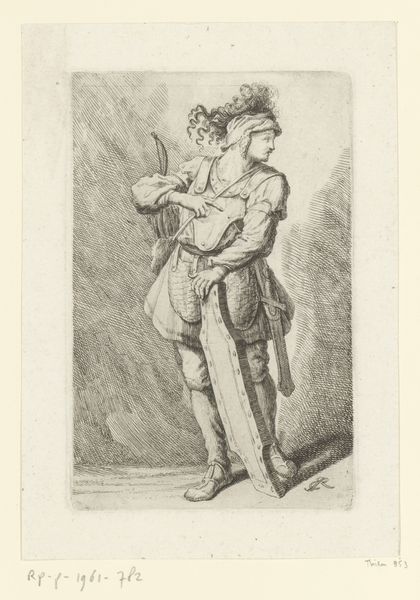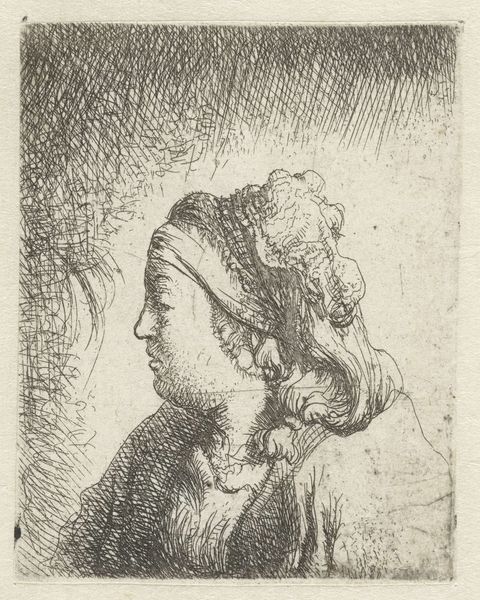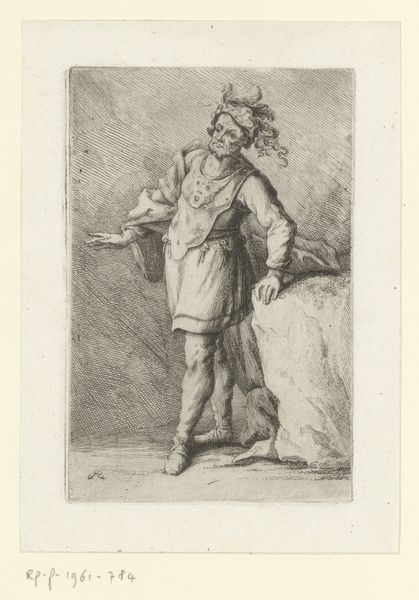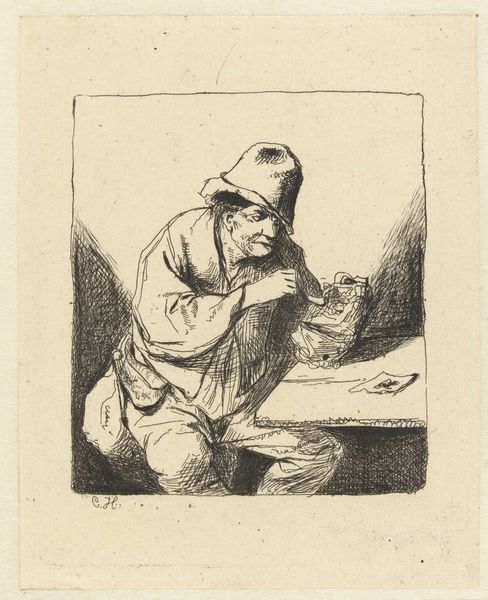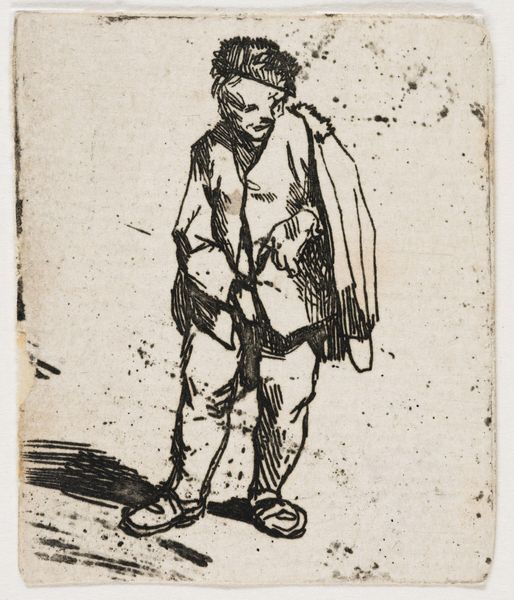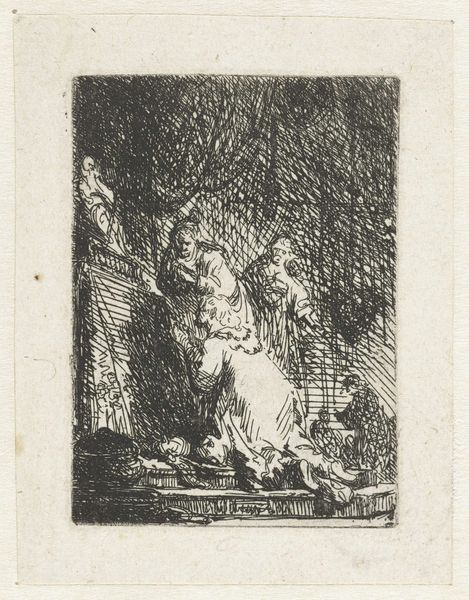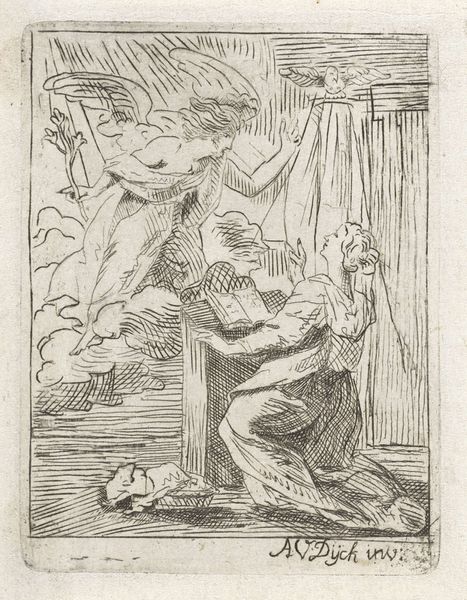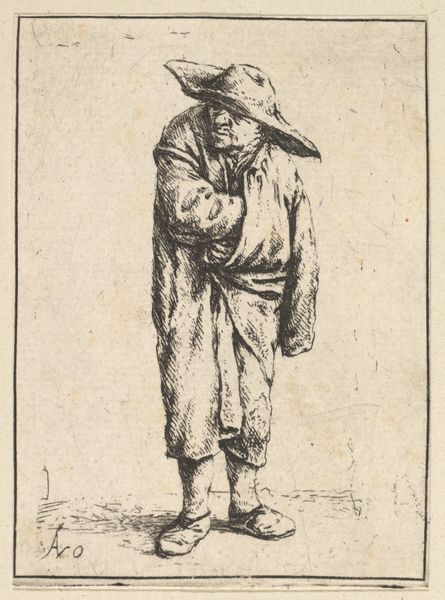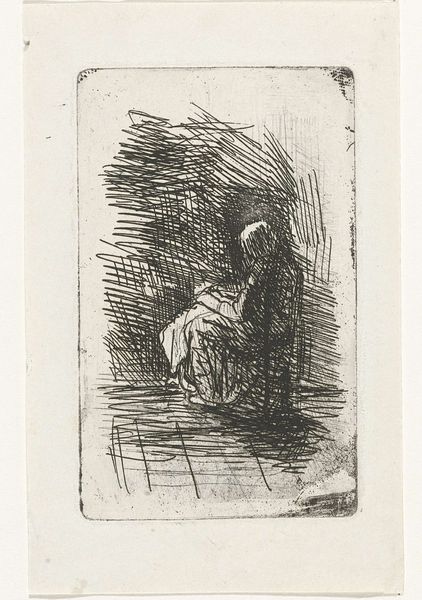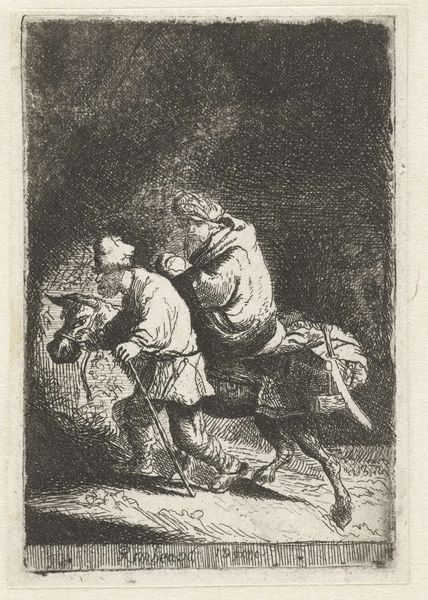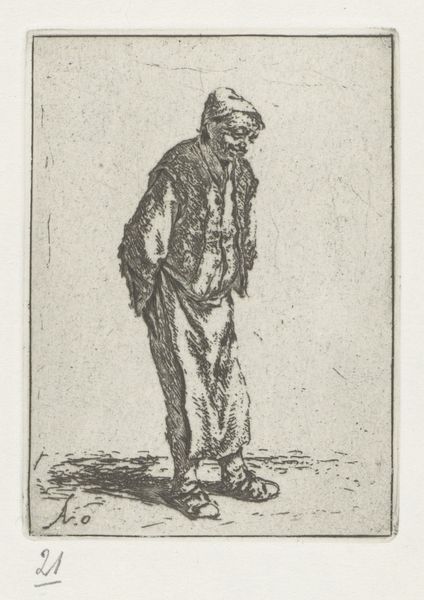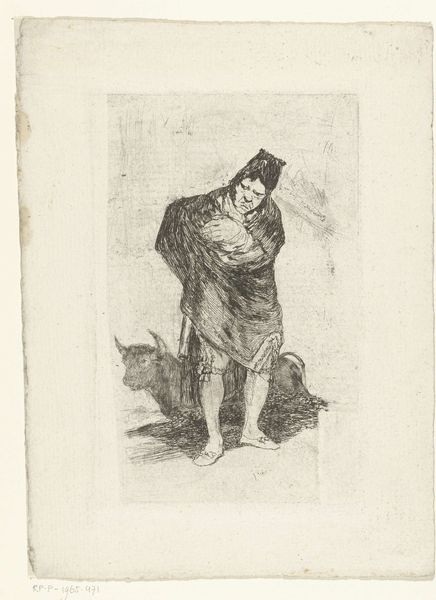
drawing, print, etching, ink
#
portrait
#
drawing
#
ink drawing
# print
#
pen sketch
#
etching
#
pencil sketch
#
figuration
#
ink
#
genre-painting
#
realism
Dimensions: height 96 mm, width 80 mm
Copyright: Rijks Museum: Open Domain
Editor: Here we have Willem Cornelis van Dijk's "Boy with Hoop," created in 1856 using etching and ink. The texture really strikes me, especially the contrast between the solid form of the boy and the almost chaotic hatching in the background. How would you interpret this work? Curator: Well, focusing on the materiality, we must consider printmaking's role in democratizing images during the 19th century. Etchings, unlike unique paintings, allowed for the mass production of images, making art accessible to a wider audience. What social class do you think this etching might have been intended for? Consider the clothing, the hoop as a toy. Editor: Probably not the very poor, but perhaps the burgeoning middle class? It's not opulent, but there's a sense of simple leisure. Is the medium significant beyond just accessibility? Curator: Absolutely. Etching allowed for intricate linework, mimicking the detail prized in academic drawing. By choosing this medium, Van Dijk connects his image of everyday life with established artistic practices. We must consider how the printmaking process, using acid to bite into the metal plate, impacts the aesthetic. Editor: So, the very *process* of creating the image contributes to its meaning and effect. Curator: Precisely! And that connects directly to the experience of consumption, or collecting, this work. Do you think a painted version would carry the same weight? Editor: I don't think so. It's like the print medium reinforces a sense of accessible, everyday reality that a painting might not. I hadn't really considered the social impact of the printmaking process. Thanks, this perspective gives me a new appreciation for the artwork. Curator: And hopefully, a better understanding of how art-making processes play an important role for any artwork we analyze!
Comments
No comments
Be the first to comment and join the conversation on the ultimate creative platform.
